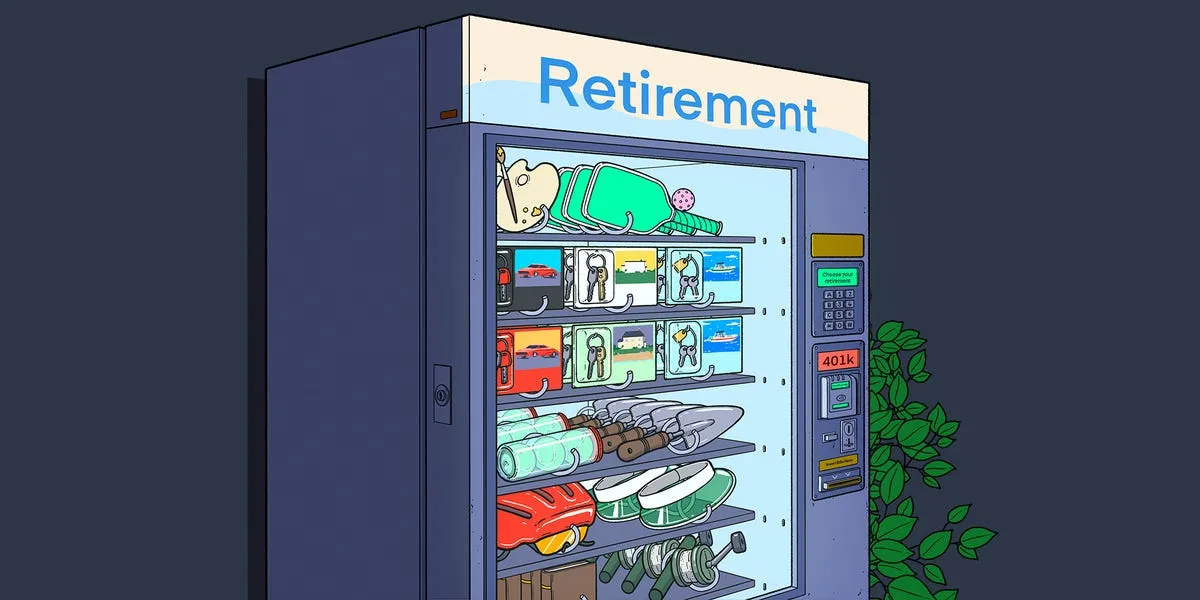
It's a common scenario for many 24-year-olds today: the focus is primarily on establishing a career rather than planning for retirement. With decades of work ahead, the thought of financial needs and life goals for their future selves often takes a backseat. I was no different. While I enrolled in a 401(k) and began building an emergency fund, I had never truly mapped out what my future might hold 40 years down the line. However, this perspective shifted dramatically after conducting interviews for Business Insider's Retirement Regrets series.
Over the past several months, I engaged with more than 200 older Americans, and an additional 4,500 retirees shared their experiences through online forms. These individuals generously recounted their journeys to retirement, revealing both successes and pitfalls. Some described a vibrant future filled with world travel, volunteering, and family time, while others expressed significant regrets — including working multiple jobs into their 70s, caring for aging parents, or facing unstable housing situations.
Initially, I wasn't concerned about my own retirement plans, but as I heard these stories, I began to reflect on potential mistakes I might be making. For instance, after a woman mentioned her overly cautious investment strategy, I decided to shift most of my savings into the market, opting for relatively safe index and mutual funds. Inspired by a man's regret over not maximizing his 401(k) contributions, I increased my own contributions. Yet, what resonated most in these conversations was the acknowledgment of the psychological, social, and emotional aspects of retirement.
Many retirees shared that they spent their entire lives working towards a relaxing retirement, only to discover that they missed the self-fulfillment that came from their jobs. Others sacrificed travel or family time in pursuit of wealth, only to face health issues post-retirement. Interestingly, some reported finding joy in retirement despite financial limitations. These recurring themes underscored the importance of non-financial elements in a fulfilling retirement.
Through these interviews, it became clear that there isn't a one-size-fits-all approach to retirement. I might not be able to predict my career trajectory or lifespan, and unexpected life events could derail my plans. However, I've learned that it's possible to adapt. My priorities may shift between now and my 60s, but the insights from these retirees have alleviated some of my anxiety surrounding retirement planning.
While the age-old adage that money can't buy happiness holds true, it was evident from my conversations that financial stability plays a significant role in overall well-being. Retirees emphasized some basic principles: save diligently, live within your means, and plan for the long term. Many members of Gen Z, often facing lower starting salaries and high living costs, may find it challenging to invest. Nevertheless, those who have advanced further in their careers emphasized the importance of learning financial fundamentals through resources like YouTube, books, or family discussions.
One compelling story is that of Kevin Foster, a 64-year-old former chemical and wastewater lab technician. Despite regrets over credit card debt and not maximizing his 401(k) contributions earlier, he managed to save over $700,000 by retirement, supplemented by a pension. His foresight proved crucial when he was forced to retire early due to a debilitating autoimmune disease, yet he continues to live comfortably thanks to Social Security Disability Insurance, savings, and his wife's income.
Kevin's advice to his grandson emphasizes the need for early savings: "I told him, 'I don't care how much you put away, you've got to put something away.'" Financial advisors may differ on the exact amounts to save, but they agree on the necessity of starting early to benefit from compounding interest.
Donna Davis, 71, faced significant challenges in her financial journey. As a single mother and teacher, she struggled to save and was forced to return to work shortly after retiring. She regrets not having saved more during her younger years, underscoring the stark reality that dreaming about retirement often differs greatly from the reality.
As I spoke with retirees, it became evident that unforeseen challenges, such as illness, job loss, or the death of a loved one, can derail even the most thoughtful retirement plans. Many individuals in my generation have yet to fully consider these possibilities, prompting me to reevaluate my own retirement outlook.
As I delved deeper into discussions, I discovered that emotional fulfillment often takes precedence over financial success in retirement. Barbara Moore-Peters, 62, who has faced significant health challenges, finds joy in her family, emphasizing that legacy and relationships matter most. This sentiment resonated with numerous retirees, many of whom expressed that personal fulfillment in retirement is about more than just finances.
It's important to note that many retirees report returning to work for various reasons, including social connection and a sense of purpose. AARP research indicates that nearly half of unretired individuals cite these motivations for reentering the workforce.
Retirees like Aida Porras, 67, have creatively navigated their post-career lives. After facing personal losses, she took over her family art supply business, which reignited her passion for painting and helped her form new connections. Aida's story illustrates that while a financial plan is essential, adaptability and finding joy in new pursuits are equally important.
Ultimately, the most crucial aspect of a successful retirement lies in understanding what brings happiness. Many retirees shared that striking the right balance between ambition and enjoyment can be challenging. While some found success in pursuing travel and relationships, others learned to prioritize their happiness over financial gains.
As I reflect on my own experiences and those of retirees, I am reminded that my mid-20s provide ample opportunity to contemplate a fulfilling future. Retirement may not mean achieving wealth or leisure time in paradise, but it can represent a chance to live purposefully and make meaningful connections.
If you're a member of Gen Z beginning to think about retirement, consider sharing your thoughts. Your journey may inspire others to reflect on their own paths.
Noah Sheidlower is a reporter on Business Insider's Economy team who led the Retirement Regrets series.